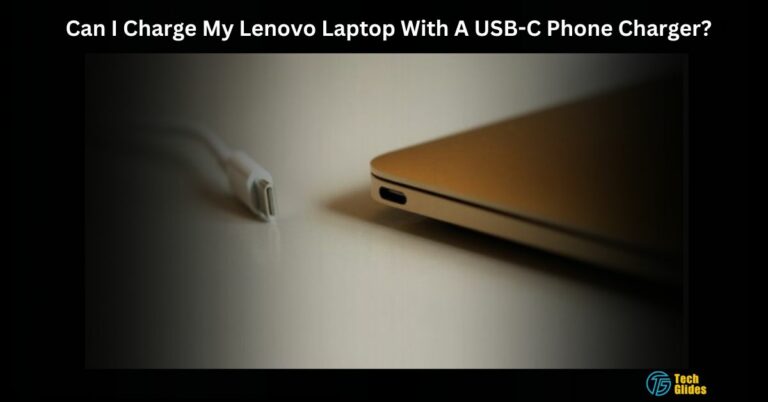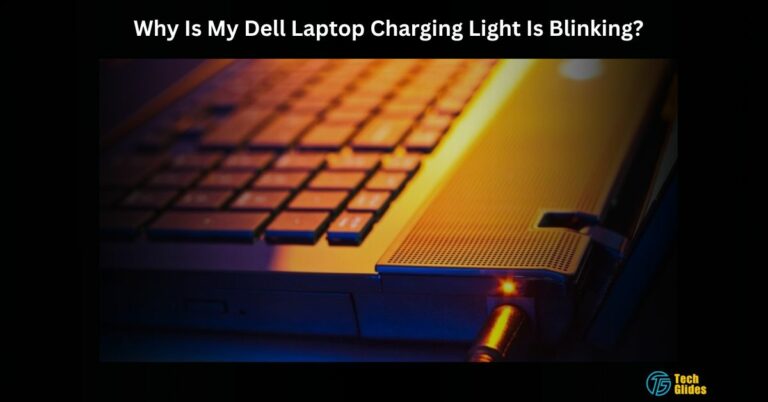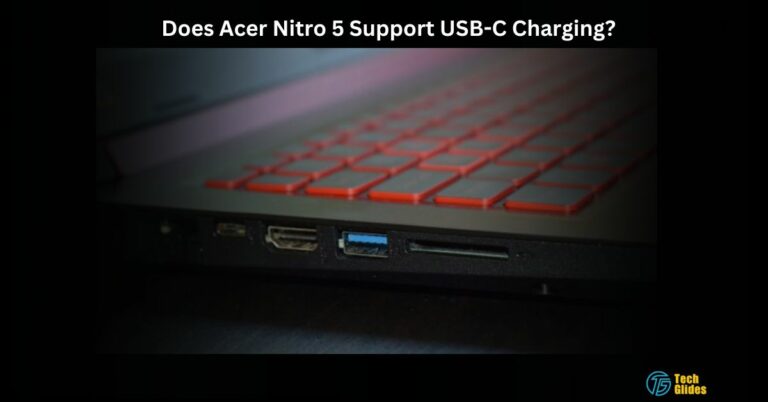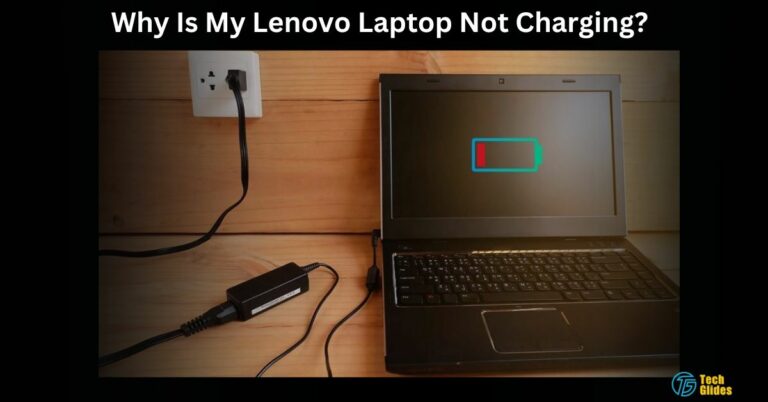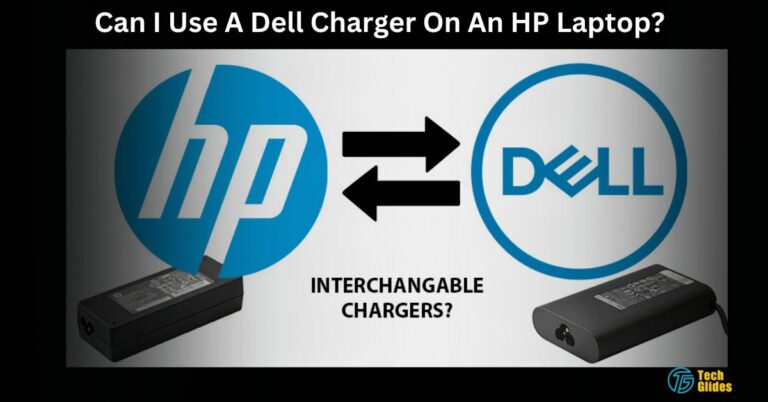Is It Bad To Use Your Laptop While Charging? – 2024 Solutions Here!
A few days back, I was using my laptop while charging it and felt an intense warm air from the exhaust area. Didn’t get it at first, and then my laptop started to stuck and did not work properly. After scratching my head, I finally cracked the code!
Yes! Using a laptop while charging is bad for the laptop battery but not so dangerous. If you do this regularly, then It’ll affect battery life, which starts to drain. Slow processing, Sudden shutdown, Hanging, and Low battery are the results you can face.
As stated here, There’s nothing to worry about that much, but in case you’re having trouble like those I’ve mentioned, then Take a look at the further discussion below!
Contents
- How Does A Laptop Battery Charge? – Beginner’s Stuff First!
- Should I Use a Laptop While Charging? – Is it Okay to Use a Laptop While it is Charging?
- What Are The Negative Impacts Of Using Laptop While Charging – That’s What Will Happen!
- 12 Ways to Increase Your Laptop Battery Life – Must Do 10th One!
- 1. Firstly, Adjust Screen Brightness:
- 2. Then, Use Power Saver Mode:
- 3. Try To Close Unused Programs:
- 4. Disconnect External Devices:
- 5. Ensure To Reduce Screen Timeout And Adjust Sleep Settings:
- 6. Never Forget To Disable Background Apps:
- 7. Optimize Browser Tabs And Manage Wi-Fi and Bluetooth:
- 8. Update Drivers:
- 9. Opt for SSD Storage:
- 10. Keep Your Laptop Clean:
- 11. You Must Have To Customize Power Plan:
- 12. Last But Most Importantly, Calibrate Your Battery:
- How Bad Is It To Leave Your Laptop Plugged In Overnight? – Danger Zone For Your Device!
- Frequently Asked Questions:
- To Sum Up The Discussion:
How Does A Laptop Battery Charge? – Beginner’s Stuff First!
Before we address the question of whether using a laptop while charging is a bad practice, let’s take a moment to understand how a laptop battery charges. This basic knowledge will help shed light on the potential effects of using your laptop during the charging process.
Basically, Laptop batteries are typically lithium-ion (Li-ion) or lithium-polymer (LiPo) batteries. These batteries work by moving lithium ions between the positive and negative electrodes, creating an electrical charge. I know you’re not for taking a Science lecture here, but let me be clear.
So, When you plug your laptop into the charger, it provides a constant flow of electricity, which drives the charging process. The charger not only charges the battery but also powers the laptop while in use. That’s what happens when you plug into the charging.
And now, think for a moment about what would happen when you let your charger be plugged in, even if the charging is full. Or you aren’t letting the charging be full and using the laptop simultaneously. Obviously, there’s going to be a problem then.
Should I Use a Laptop While Charging? – Is it Okay to Use a Laptop While it is Charging?
Now that we have a fundamental understanding of how laptop batteries charge, let’s address the primary question: Is it okay to use your laptop while it’s charging?
Yes! Somehow, it is okay and doesn’t have any problem. Even Modern laptops are designed to handle this scenario without causing significant harm to the laptop or its battery. However, it’s essential to consider a few factors.
Using your laptop while charging can lead to slower charging, especially when you’re engaged in power-intensive tasks. It can generate increased heat, which may affect your battery’s lifespan.
Over time, this practice could result in a shorter overall battery lifespan, as lithium-ion batteries naturally degrade, even when not in use. Furthermore, while modern laptops have mechanisms to prevent overcharging, excessive heat during prolonged use can still impact the battery’s health and safety.
Therefore, using your laptop while charging is generally safe, but it’s not a wise decision; the long-term procedure will eventually affect the health of your laptop and its battery.
What Are The Negative Impacts Of Using Laptop While Charging – That’s What Will Happen!
1. Slower Charging Of Laptop:
So, the first and foremost problem that arises in this scenario is the slower charging of your device. This is because a portion of the power from the charger is being diverted to power the laptop’s operations. So, it’ll not charge your device fully at that moment. Check Our Guide Over Why Does My Laptop Get Slow When Charging and resolve the issue now!
2. Overheating Laptop:
Here comes another factor to which you have to pay attention. Using your laptop for resource-intensive tasks like gaming or video editing while it’s charging can generate additional heat.
You have to understand that heat is an enemy of batteries and can reduce their lifespan very aggressively. So, It’s essential to monitor the laptop’s temperature to avoid overheating.
3. Shorter Battery Lifespan And Sudden Shut Down Will Appear:
Continuous use of your laptop while it’s plugged in may lead to a shorter overall battery lifespan. Over time, this can result in decreased battery capacity and reduced unplugged usage time. See Why my laptop turns off when I plug the charger by clicking the inserted link.
4. Battery Degradation – I Have Faced This Personally!
This is what My laptop has gone through with. Basically, Lithium-ion batteries are subject to a natural degradation process, even when not in use. The rate of degradation can increase if the laptop is frequently used while charging.
5. Lastly, Risk Of Overcharging:
Last But Not Least, While modern laptops are equipped with mechanisms to prevent overcharging, excessive heat generated during prolonged use can impact the battery’s health and safety.
So, this is what you’ll face when you just continue using the laptop while charging it. Again, repeating, This will happen when you’ve been doing it for so long or for months and in case your laptop has aged. Otherwise, all good. Must Take an analysis of this Forum-Based website. Now, let me tell you some tricks to increase the lifespan of your laptop.
12 Ways to Increase Your Laptop Battery Life – Must Do 10th One!
1. Firstly, Adjust Screen Brightness:
Lower your screen’s brightness to a comfortable level. Bright displays consume more power, so reducing brightness can significantly extend battery life.
2. Then, Use Power Saver Mode:
Activate your laptop’s power saver or energy-efficient mode. This mode conserves energy by reducing performance and background activities.
3. Try To Close Unused Programs:
Shut down or minimize unused applications and background processes. Running unnecessary programs drains your battery faster.
4. Disconnect External Devices:
Unplug or disconnect external devices like USB drives, printers, or external hard drives when not in use. These devices draw power from your laptop.
5. Ensure To Reduce Screen Timeout And Adjust Sleep Settings:
Set a shorter screen timeout to have your laptop’s display turn off more quickly when not in use. This will really really affect the life of your laptop and its battery as well. Furthermore, Customize your laptop’s sleep settings to put it to sleep or hibernate after a shorter period of inactivity.
6. Never Forget To Disable Background Apps:
One more thing I always recommend is to Disable or limit background apps that consume power, such as automatic updates and cloud syncing.
7. Optimize Browser Tabs And Manage Wi-Fi and Bluetooth:
Close or suspend unused browser tabs and extensions. Multiple open tabs can be a significant drain on your system resources. Plus, Turn off Wi-Fi and Bluetooth when not needed. These wireless connections consume power when active.
8. Update Drivers:
Ensure your device drivers are up to date, as newer drivers often include power-saving enhancements.
9. Opt for SSD Storage:
Solid-state drives (SSDs) consume less power than traditional hard disk drives (HDDs). Consider upgrading to an SSD for better battery performance.
10. Keep Your Laptop Clean:
Overheating can lead to increased power consumption. Ensure your laptop’s cooling system is clean and functioning optimally.
11. You Must Have To Customize Power Plan:
In your laptop’s power settings, customize a power plan to prioritize energy efficiency. Here’s the link to the Quora that’ll also help you understand the factor we’re discussing here in this article.
12. Last But Most Importantly, Calibrate Your Battery:
Occasionally, calibrate your laptop’s battery by fully charging and then discharging it. This can help your laptop estimate battery life more accurately.
How Bad Is It To Leave Your Laptop Plugged In Overnight? – Danger Zone For Your Device!
Another common concern among laptop users is whether it’s safe to leave your laptop plugged in overnight. Let’s address this important question and provide some guidance on best practices:
Leaving your laptop plugged in overnight occasionally is unlikely to have a significant impact on your battery’s health. Modern laptops are designed with smart charging systems that help prevent overcharging. However, it’s essential to consider the following tips:
Unplug When Fully Charged: If possible, unplug your laptop when it reaches 100% charge. Most laptops will stop drawing power from the charger at this point, and this can help preserve the battery.
Use a Charging Limiter: Some laptops allow you to set a maximum charge level (e.g., 80%) to extend battery lifespan. This can be particularly useful if you often leave your laptop plugged in for extended periods.
Maintain a Comfortable Temperature: Avoid placing your laptop on surfaces that can obstruct ventilation and cause overheating. Heat can accelerate battery degradation.
Frequently Asked Questions:
1. Can You Overcharge Laptop Batteries?
No, modern laptops have safeguards against overcharging. When the battery reaches 100%, the laptop stops drawing power from the charger.
2. Should You Remove The Laptop Battery While The Laptop Is Plugged In?
In most cases, you can leave the battery in while using the laptop plugged in. Modern laptops handle this safely, but you may remove it for desktop use.
3. Is It Safe To Keep My Laptop Charging All The Time?
Leaving it plugged in is generally safe but may reduce long-term battery life. To extend it, unplug it when fully charged and use a charging limiter if available.
4. At What Percentage Should I Charge My Laptop?
Optimal battery health is maintained by charging between 20% and 80%. No need to wait for a low charge level.
5. Why Is My Laptop Battery Draining So Fast?
Fast battery drain can result from background apps, high screen brightness, and battery age. Optimize power settings and identify power-hungry apps for better battery life.
To Sum Up The Discussion:
It’s Totally fine to use your laptop while charging it until ur laptop starts to overheat, slow down, and turn off randomly.
So make sure to charge it first and then use it; add Cooling pads, a Flawless battery, SSD cards, and follow the provided instructions here in this article.
Work Safely With Your Laptop!



